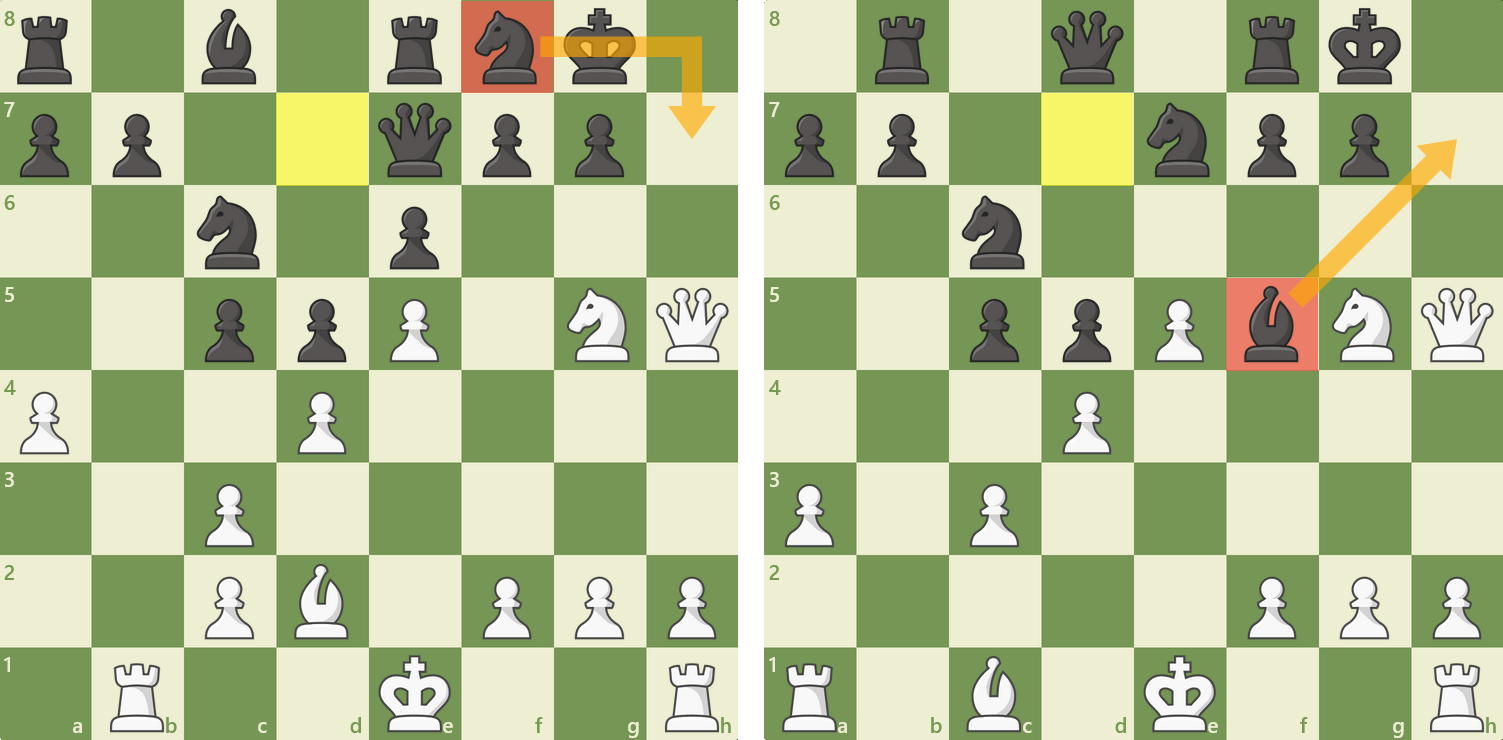
Greek Gift
Do you want to storm your opponent's castle? You can draw inspiration from ancient Greek literature and offer your opponent a gift—one that they won't be too happy to receive!
Here's everything you need to know about the Greek Gift, one of the most common and dazzling sacrifices in chess:
What Is The Greek Gift?
In chess, the Greek Gift is a common sacrifice designed to expose the enemy king and start a devastating attack. The Greek Gift happens when a player sacrifices a bishop for the h7-pawn as White or the h2-pawn as Black. Below you can see an example of the Greek Gift in its purest form.
Why would a player trade a bishop for a single pawn? As explained, this sacrifice exposes the enemy king and allows for a ferocious attack to start. Let's take a look at some of the attacking possibilities created by this sacrifice:
As you can see, White's well-posted pieces and Black's lack of defensive pieces on the kingside allow for this sacrifice to work. White's knight and queen are ready to come into the attack, aided by the h-pawn (and sometimes even the rook on h1).

Black, on the other hand, has no way of bringing their pieces to their king's aid. If Black had the possibility of bringing more pieces to the kingside (especially to cover the h7-square), the Greek Gift wouldn't work.

Why Is The Greek Gift Important?
The Greek Gift is important because it can be an effective tool in your chess toolbox. You need to be aware of this sacrificial pattern, both to use it in your favor and to stop your opponents from using it against you.
Knowing the idea behind this pattern also allows you to modify it to work in slightly different situations. Below you can see a modification of the Greek Gift that happened in a game between GMs Gata Kamsky and Sam Shankland. Annotations were written by GM Daniel Naroditsky:
Knowing how to defend against the Greek Gift is also important because it can help you win more games, too! If your opponent incorrectly sacrifices a bishop but misses your defensive resources, you're likely to gain a significant advantage. The example below shows a Greek Gift backfiring, with Black coming out of it with an extra piece.
Test
Now that you've learned about this common sacrifice, it's time to test your knowledge! Can you see the best move in the position below?
White just sacrificed a bishop to expose your king. Should you resign?
Conclusion
You now know what the Greek Gift is in chess, what it is important, and how to use it to win more games. Check out this lesson by WGM Keti Tsatsalashvili to learn more about the Greek Gift and other sacrifices!







